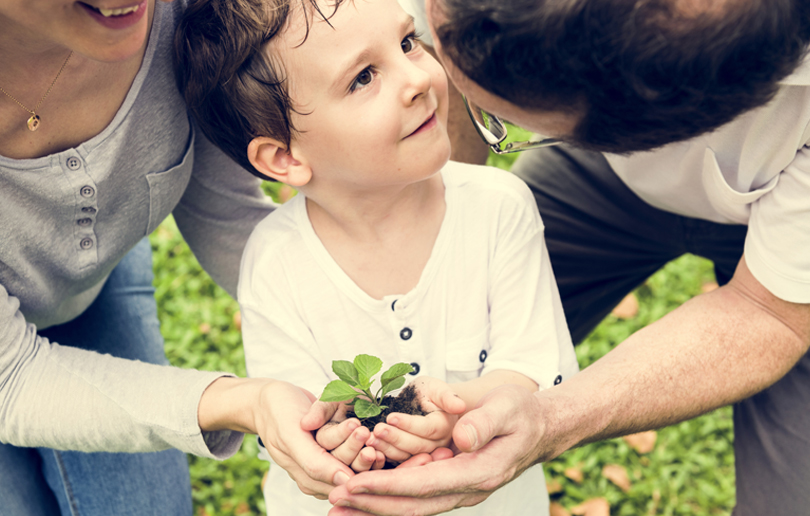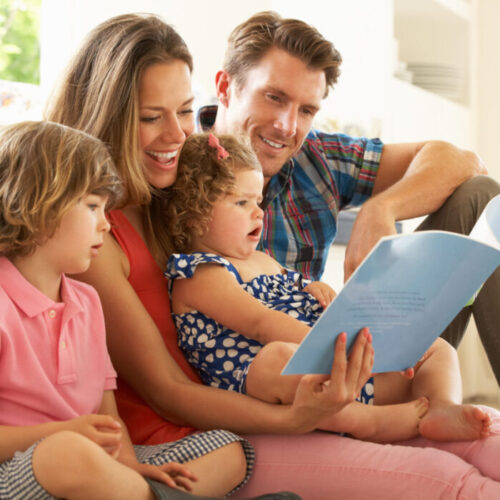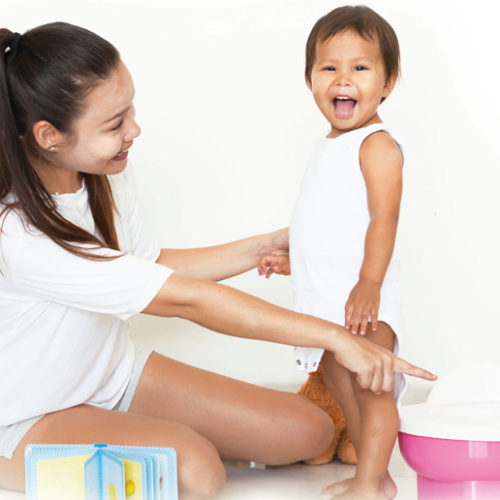Eco-Guide to Parenting
As a parent, we want to give our kids the best in the world. However, while taking all the efforts, we sometimes forget that kids mostly learn from their parents. Amruta Kshemkalyani, a sustainability and green-building consultant and founder of sustainabilitytribe.com offers advice to parents looking to bring positive changes to their family lifestyle

When it comes to taking care of our environment, it’s important to expose children to good practices early on in life, so that they don’t need to re-learn the good practices in their adulthood, like most of us. An earth- friendly or sustainable lifestyle begins with small actions. From my experience as a mother, once we adopt small changes in our daily routine, our kids automatically start following our steps. Here are a few to begin with:
Say no to plastic bags, straws and disposables
It’s important to understand the adverse impact of disposables and plastic waste on our health and the environment. Plastic waste, for instance, those that are lighter in weight like bags and straws end up in sea and create garbage patches in the ocean. This garbage doesn’t just harm sea-life but also dissolves and ends up on our plate, not only through seafood
but also in the form of salt. Therefore, it’s essential for each of us to make a habit of saying no to disposables and start using reusable items like bags, water bottle, and tea mugs. It’s better not to hide these facts about waste from kids, maybe you can tell younger kids while playing with their toys like turtles or sea creatures, on how plastic waste can harm these animals.
Enjoy cleaning up outdoors
This is the most important thing we can teach our kids. Don’t let them litter anywhere and make it a point you are not doing this yourself. If you keep this rule loose or bend it conveniently, kids will learn to bend rules conveniently. So, every time you are outdoors, at the parks, desert or beach, clean up before you leave. In our family, we don’t just clean up our garbage, but we make it a point to clean up other areas, so that our son can learn the importance of taking responsibility.
Grow your food
Involve them in gardening. Once they see the effort that goes into one single fruit, like a tomato, and when they feel the joy of seeing the fruits of their labour; they will automatically understand why they need to respect plants and even food on their plate. They will understand why they shouldn’t waste food. This is also a great way of connecting with nature and yourself.
Say no to overconsumption
If children see their mums shopping all the time, and buying plenty of clothes and shoes, they will feel overconsumption is the norm. Mum, it’s time to audit yourself to see if you overconsume anything? It could be electronics, cosmetics or even fast food. We don’t want our kids to get lost in material things, we want them to have a healthy body and mind in a livable environment. And so, we need to say no to overconsumption. Today’s overconsumption is tomorrow’s waste. Overconsumption is also waste of our planet’s precious resources. It’s important to teach kids needs vs wants early on.
Reuse and Recycle
When kids want to throw something out ask them if they can make something new out of their unwanted item? If they want to buy something, ask them instead of buying, can they make it at home out of waste material? This is when they will learn how to reuse. To teach them how to recycle, involve them in sorting recyclables before storing them, and make it a point to take children with you when going to the recycling stations. Ask them to help you drop recyclables in segregated bins too. If you are composting at home, involve them in this activity as well.
Use natural material and local produce
While shopping for anything like clothes, bags, stationery and toys; select natural materials and talk to your children about this, where they come from and why they are better. For example, ask them to go for wooden toys over plastic. Inform them about the environmental impact as well as health benefits of wooden toys, and talk about adverse effects of using plastic
Be kind to people, plants and animals
We teach our children manners, but it’s important to teach them kindness too. Don’t just limit it to people, but also extend it to animals and plants. When kids are hurting animals for fun, point out that they are being unkind to the animal. When they run over shrubs, let them know that they are actually hurting the plant. Be caring towards people, plants and animals and while doing that, talk to your children about why you are doing so. They learn from your actions. Make it a point to teach them about helping others as well.
Spend time in nature
If you spend your weekends being a couch potato, your kids will never know the joy of spending time outdoors. Make sure to take your kids outdoors, to parks, the beach, desert or farms, and a wildlife park, where they can learn more about the natural eco-system. On holiday, make it a point to spend time outdoors and let you kids understand how natural systems are different in various parts of the world. In the UAE or while travelling, go camping with your kids and enjoy the great outdoors without any luxuries.
Give back/volunteer
Teach your kids to give back or volunteer, this is the best gift you can give them. Through research, scientists have discovered that volunteering or contributing selflessly leads to happiness. You could get your children to sign up for an environmental cleanup project, tree planting or a social cause.
Over the last ten years, Amruta has been sharing her knowledge and experience of living, travelling sustainable, green parenting and raising awareness through Sustainability Tribe. She has also been instrumental in allowing corporates to reach their sustainability goals and is a keynote speaker on topics related to sustainability. Amruta is also the founder of the #ZeroWasteUAE initiative.












Comments